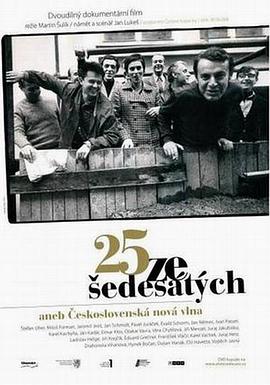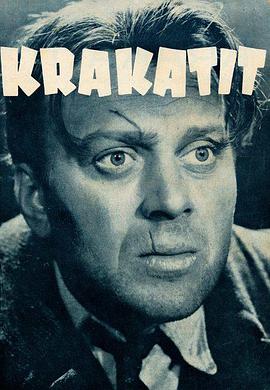奥塔卡·瓦夫拉
搜索"奥塔卡·瓦夫拉" ,找到 2部影视作品
导演:
/
马丁·舒利克
剧情:
The 2-part feature-length documentary "25 ze šedesátých aneb Československá nová vlna" ("25 from the Sixties, or Czechoslovak New Wave") presents a complex view of the phenomenon of Czech and Slovak New Wave in the cultural and social context of the 60's. 25 fundamental films commented on by their makers and film historians offer the viewer a dramatic insight into the golden era of Czechoslovak cinema. The documentary is a follow-up on the biographical TV series "Zlatá šedesátá" (Czech Television, 2009), based on the filmmakers' personal remembrances. As opposed to the series, the documentary presents the Czech and Slovak cinema of the 60's in the national, international and also inter-generational context. It describes the ways the New Wave crossed the existing artistic boundaries, how it variegated the world cinema and where it left an ineffaceable impression. It analyses the work of filmmakers in a state-funded cinema, under the pressure of ideological demands on one hand and commer我在公交车上ce on the other. It presents the dilemma of a man - an artist - on the edge between contradictory social systems and incongruous aesthetic requirements. The existential drama of a man acting freely and at the same time mercilessly crushed by the wheels of the system. The 60's are, from this point of view, mostly an era of fortunate historical constellation, not only in - at that time - Czechoslovakia, but on a world-wide scale. An era of expectations and upswing, but also an era of exemplary human decisions and artistic pursuit. Those are some of the things "25 ze šedesátých aneb Československá nová vlna" wants to commemorate. Part 1 comments on: ■"Slnko v sieti" ("The Sun in a Net," 1962) by Štefan Uher ■"Konkurs" ("Audition," 1963) by Miloš Forman ■"Křik" ("The Cry," 1963) by Jaromil Jireš ■"Postava k podpírání" ("Joseph Kilian," 1963) by Pavel Juráček & Jan Schmidt ■"Každý den odvahu" ("Courage for Every Day," 1964) by Evald Schorm ■"Démanty noci" ("Diamonds of the Night,&亚瑟2021入口amp;quot; 1964) by Jan Němec ■"Intimní osvětlení" ("Intimate Lighting," 1966) by Ivan Passer ■"Ať žije republika" ("Long Live the Republic," 1965) by Karel Kachyňa ■"Obchod na korze" ("The Shop on Main Street," 1965) by Ján Kadár & Elmar Klos ■"Romance pro křídlovku" ("Romance for Bugle," 1966) by Otakar Vávra ■"Sedmikrásky" ("Daisies," 1966) by Věra Chytilová ■"Ostře sledované vlaky" ("Closely Watched Trains," 1966) by Jiří Menzel Part 2 comments on: ■"Kristove roky" ("The Prime of Life," 1967) by Juraj Jakubisko ■"Stud" ("Shame," 1967) by Ladislav Helge ■"Svatba jako řemen" ("A Hard and Fast Marriage," 1967) by Jiří Krejčík ■"Drak sa vracia" ("Dragon's Return," 1967) by Eduard Grečner ■"Marketa Lazarová" ("Marketa Lazarová," 1967) by František Vláčil ■"Spřízněni volbou" ("Elective Affinities," 1968) by Karel Vachek ■"Spalovač mrtvol" ("The Cremator," 1968) by Juraj Herz ■"Zabitá neděle" ("Squandered Sunday," 1969) by Drahomíra Vihanová ■"Pasťák" ("The Decoy," 1968) by Hynek Bočan ■"Případ pro začínajícího kata" ("Case for a Rookie Hangman," 1969) by Pavel Juráček ■"322" ("322," 1969) by Dušan Hanák ■"Slávnosť v botanickej záhrade" ("Celebration in the Botanical Garden," 1969) by Elo Havetta ■"Všichni dobří rodáci" ("All My Good Countrymen," 1968) by Vojtěch Jasný
导演:
/
奥塔卡·瓦夫拉
剧情:
Based on the novel by Karel Capek, the prominent Czech writer of the early 20th century who coined the word robot for his play R.U.R., the story revolves around a快播你懂得 discovery of Krakatit - a powerful explosive - by Prokop, an experimental scientist who, following an accidental explosion in his lab, slips in and out of delirium. When he realises that, in a delirious period, he has given the formula for making Krakatit to one of his colleagues, he tries to find the man, who does not realize how dangerous a th歪歪漫画首页登漫画登录页面ing Krakatit is. In the process, he nearly gives his discovery away again to foreign interests, a group of anarchists, and even greater forces of darkness...


